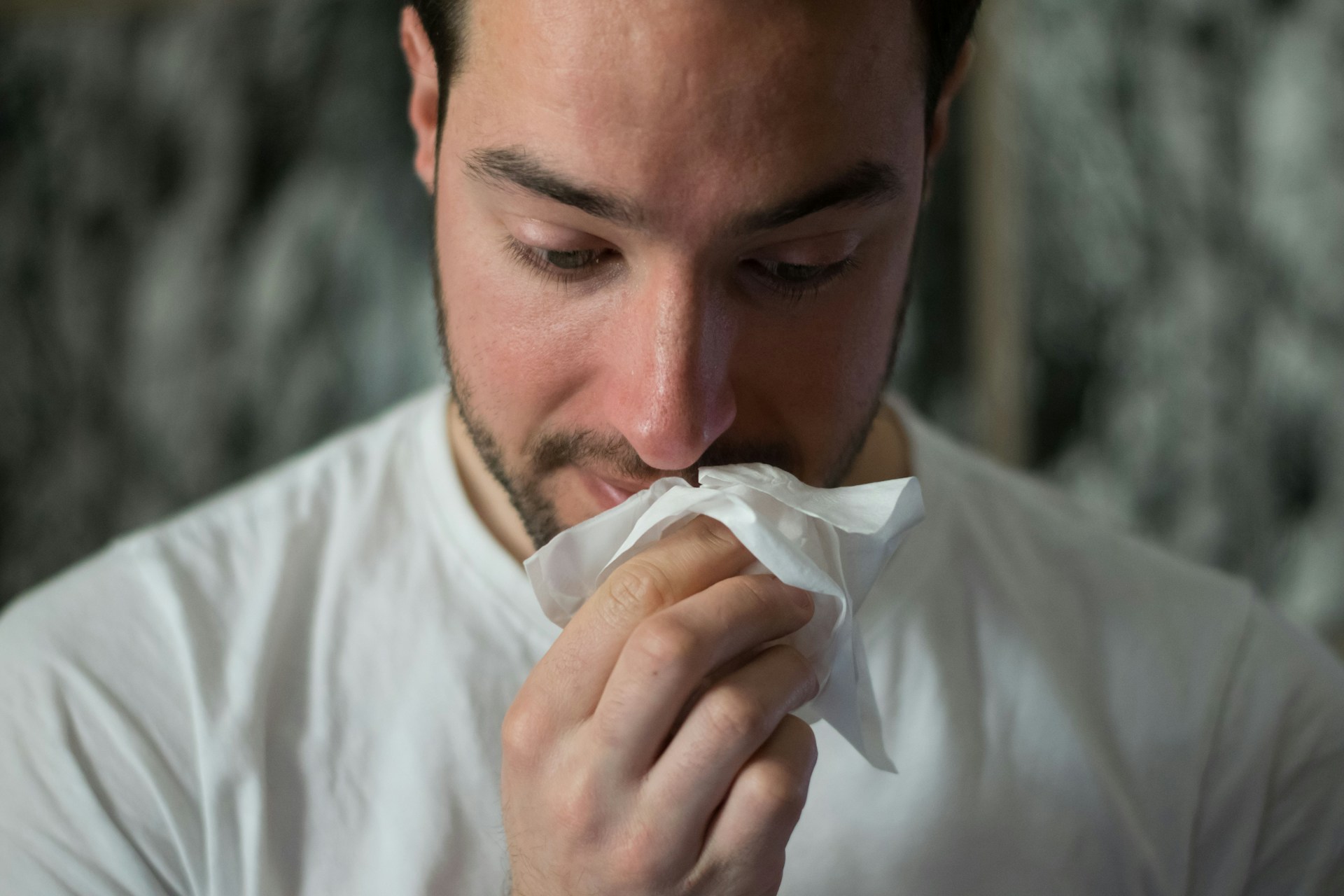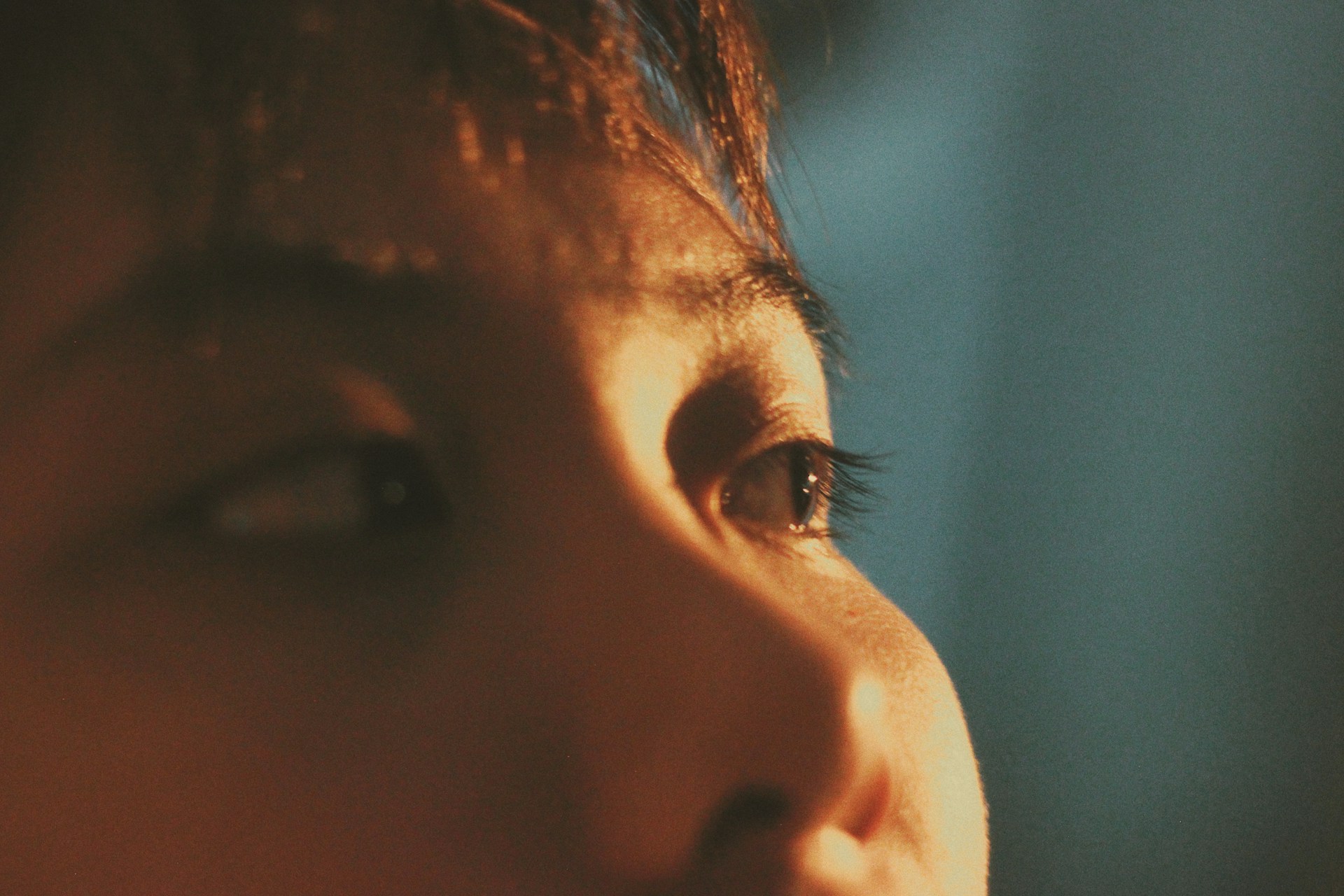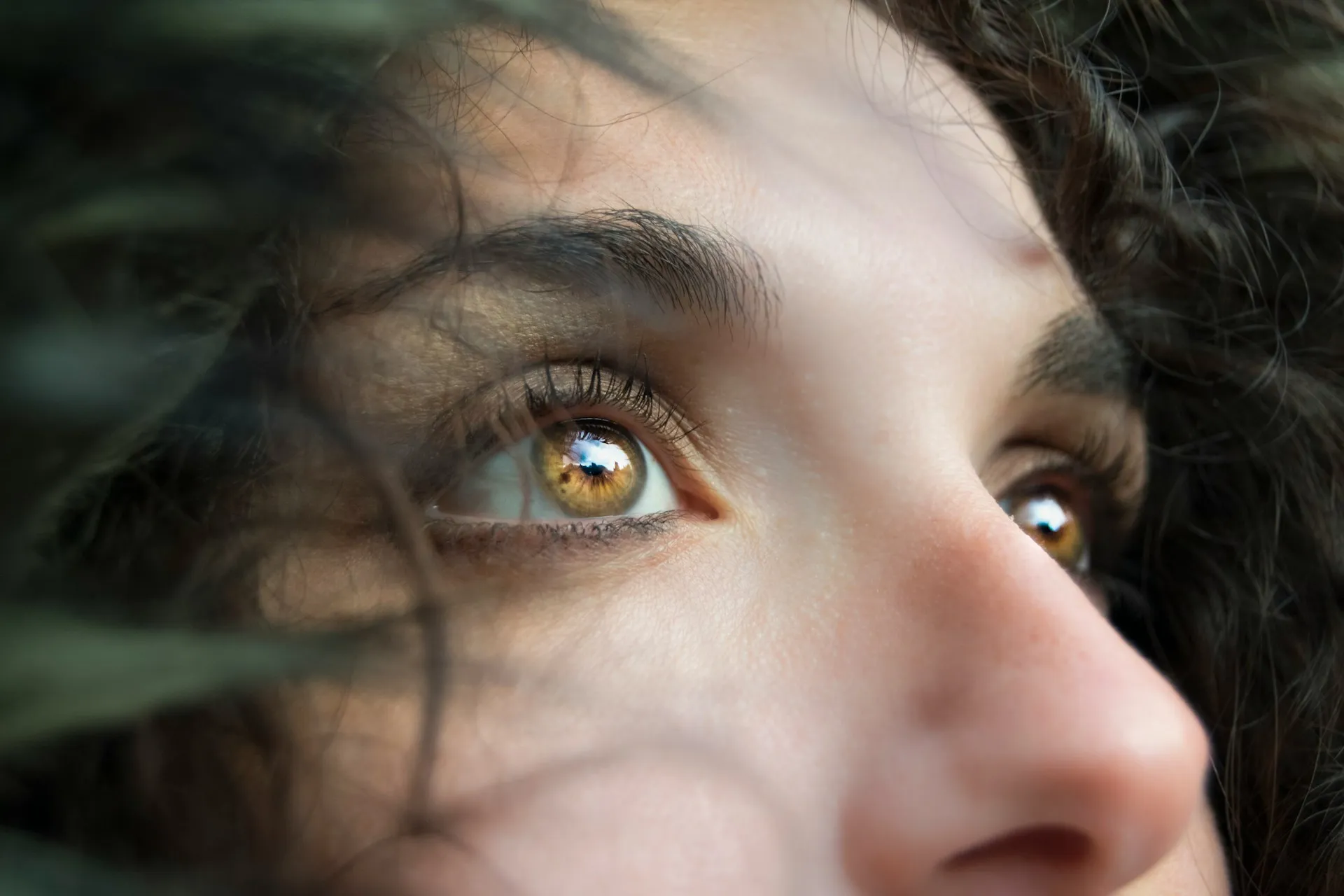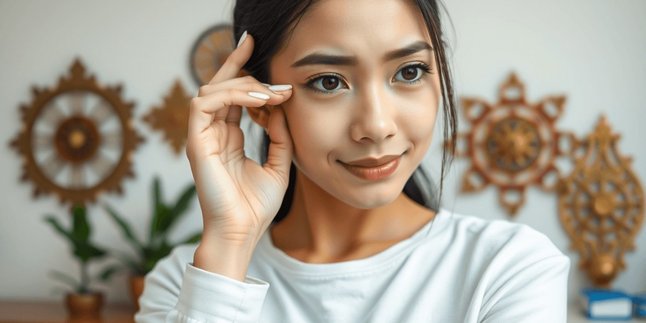Have you ever suddenly felt an itch in your nose for no apparent reason? For some people, this may just be considered a regular itch. However, in Javanese primbon belief, an itchy nose is believed to have its own meaning. This article will thoroughly discuss the
meaning of an itchy nose according to primbon, its medical causes, and how to address it.
1. Understanding Itchy Nose According to Primbon

Itchy nose (credit: unsplash)
In Javanese tradition, primbon is a book of ancestral heritage that contains various knowledge, including interpretations of occurrences on the human body. One of the topics discussed is the meaning of an itchy nose. According to primbon, an itchy nose is believed to be a sign or omen of something happening.
This belief has existed and been passed down through generations in Javanese society. For those who believe in it, an itchy nose is considered a signal that should not be ignored. The sudden sensation of itchiness is believed to be a sign of good or bad things coming into someone's life.
Although it has no scientific basis, many people still believe in the meaning behind an itchy nose. They regard it as a form of communication from nature or a message from ancestors. However, of course, this interpretation is very subjective and cannot be empirically proven.
In the context of Javanese culture, primbon not only discusses itchy noses but also various other phenomena on the human body.
For example, twitches in certain parts of the body, moles, or dreams. All of these are believed to have their own meanings that can serve as clues for a person's future life.
Regardless of belief or disbelief in the primbon, the phenomenon of an itchy nose remains interesting to study. Both from a cultural, psychological, and medical perspective. Culturally, it shows how traditional Javanese society interprets the physical symptoms experienced. From a psychological standpoint, belief in the primbon can influence how a person views and responds to events in their life. Meanwhile, from a medical perspective, there is certainly a scientific explanation behind the sensation of itchiness in the nose that needs to be understood.
2. Meaning of Itchy Nose Based on Its Location
In Javanese primbon, the location of itchiness on the nose is believed to have different meanings. Here are some interpretations based on the location of the itch:
- Itch on the right side of the nose: It is believed to indicate that someone close to you, such as a friend, partner, or sibling, is missing you. This can be interpreted as a signal to establish more intense communication with those closest to you.
- Itch on the left side of the nose: It is said to indicate that someone who has been distant from you, such as a relative who is far away or an ex-lover, is thinking of you. This could be a sign to reopen communication with people you haven't been in touch with for a long time.
- Itch on the top of the nose: In primbon, it is interpreted as a sign indicating that important news or information will soon be received. This news can be positive or negative, so mental readiness is needed to receive it.
- Itch on the bottom of the nose: Believed to be a sign of an incoming guest or the arrival of someone who will bring important news. This could be a signal to prepare yourself to welcome that person.
- Itch all over the nose: Considered a sign of a significant change in someone's life. This change can encompass various aspects of life such as career, relationships, or residence.
Of course, these interpretations are subjective and do not have a scientific basis. However, for some Javanese people, this interpretation is still held and believed to this day. They consider it a form of local wisdom inherited from their ancestors.
In practice, this interpretation is often adjusted to the context of each individual's life. For example, if someone is in the process of looking for a job and experiences an itch on the top of their nose, they may interpret it as a sign of good news related to job openings.
Nevertheless, it is important to remember that belief in primbon should not be the sole guide in making life decisions. It is better to use it as material for reflection and self-introspection while still relying on logic and rational considerations in taking action.
3. Interpretation of Itchy Nose Based on Time of Occurrence

Itchy nose (credit: unsplash)
In addition to location, Javanese primbon also associates the meaning of an itchy nose with the time it occurs. Here are some interpretations based on time:
- Morning: A sign of meeting someone you haven’t seen in a long time. This can be interpreted as a moment to renew relationships or settle pending matters with that person.
- Afternoon: Believed to be a sign of good news coming. This news may relate to work, health, or personal relationships. It is advisable to be optimistic and ready to receive positive news.
- Evening: Thought to be a sign of a guest arriving. This guest could be someone known or unknown, so it's good to be prepared to welcome someone.
- Night: According to primbon, an itchy nose at night indicates that someone is thinking of you with feelings of longing. This could be a signal to reach out to close ones who might be missing your presence.
Again, it is important to emphasize that this interpretation is merely a traditional belief that lacks scientific basis. However, for some members of society, this interpretation is still considered relevant and believed to this day.
In a modern context, this interpretation of time is often adjusted to fit daily lifestyles and routines. For example, for office workers, an itchy nose during the day may be associated with good news regarding work or a job promotion.
Interestingly, similar beliefs are also found in several other cultures around the world. For instance, in Irish tradition, an itchy nose in the morning is seen as a sign of meeting a stranger. Meanwhile, in some Asian countries, an itchy nose at night is believed to be a sign of having sweet dreams.
Regardless of belief or disbelief in this interpretation, the phenomenon of an itchy nose remains interesting to observe. It shows how humans have long tried to make sense of various physical occurrences they experience, even small things like an itch in the nose.
Most importantly, we need to be wise in responding to such beliefs. Treat them as material for reflection or entertainment, but always prioritize logic and rational consideration in our daily lives.
4. Medical Causes of Itchy Nose
Outside of primbon beliefs, medically, a runny nose can be caused by various factors. Here are some common causes of a runny nose from a health perspective:
- Allergies: Exposure to allergens such as dust, pollen, or pet dander can cause a runny nose, sneezing, and a cold. The immune system reacts excessively to these substances, producing histamine that triggers allergy symptoms including itching in the nose.
- Irritation: Dry air, cigarette smoke, or certain chemicals such as perfumes or air fresheners can trigger itching and dryness in the nasal cavity. This irritation occurs because these substances disturb the sensitive mucous membrane of the nose.
- Infection: Viral or bacterial infections in the nose (rhinitis) can cause a runny nose, congestion, and discharge of yellow or green mucus. These infections can be caused by the common cold, sinusitis, or other upper respiratory infections.
- Allergic rhinitis: This condition occurs when the immune system overreacts to allergens, causing inflammation in the mucous membrane of the nose. Symptoms include a runny nose, sneezing, and nasal congestion.
- Sinusitis: Infections or inflammation in the sinus cavities can cause a runny nose, congestion, and pain in the facial area. Sinusitis can be caused by viral, bacterial, or fungal infections.
- Nasal polyps: Growths of soft tissue in the nasal cavity that can cause itching, congestion, and disturbances in smell. Polyps usually grow as a result of chronic inflammation of the nasal lining.
- Dehydration: A lack of body fluids can cause the nasal mucosa to become dry and itchy. This often occurs during hot weather or after engaging in intense physical activity.
- Medication side effects: Some types of medication can cause a dry and itchy nose as a side effect. Examples include antidepressants, antihistamines, and certain types of high blood pressure medications.
It is important to understand that an itchy nose is usually a symptom of a medical condition, not a mystical sign as believed in traditional beliefs. If the symptoms persist for a long time or are accompanied by other disturbing symptoms, it is advisable to consult a doctor for an accurate diagnosis and appropriate treatment.
In some cases, an itchy nose can also be a symptom of more serious medical conditions such as nasal tumors or autoimmune diseases. Therefore, do not hesitate to see a doctor if the symptoms continue or worsen.
Understanding the medical causes of an itchy nose is important so that we can take appropriate action. Instead of relying solely on traditional interpretations, it is better to seek effective medical solutions to address the itchy nose problem experienced.
5. Symptoms Accompanying Itchy Nose

Itchy nose (credit: unsplash)
A itchy nose often does not occur alone, but is accompanied by other symptoms. Some common symptoms that accompany an itchy nose include:
- Sneezing: A natural reaction of the body to expel irritants from the respiratory tract. Excessive sneezing often accompanies an itchy nose, especially if the cause is allergies.
- Blocked nose or runny nose: Excess mucus production can cause the nose to feel full or even blocked. This mucus can be thin and clear (in allergy cases) or thick and colored (in infection cases).
- Itchy and watery eyes: Especially if the cause is allergies, the eyes can also feel itchy, red, and produce excessive tears.
- Headache: Pressure caused by a blocked nose or sinusitis can lead to headaches, especially in the forehead and cheek areas.
- Coughing: Mucus flowing down the back of the throat (post-nasal drip) can trigger a cough reflex.
- Sore throat: Irritation in the throat due to mucus flow or dry air can cause discomfort or itchiness in the throat.
- Fatigue: Sleep disturbances due to a blocked nose or sneezing can lead to feelings of tiredness throughout the day.
- Sleep disturbances: Difficulty breathing through the nose can disrupt sleep quality, causing insomnia or restless sleep.
- Decreased sense of smell: A blocked or swollen nose can reduce the ability to smell well.
- Fullness or pain in the face: Especially if the cause is sinusitis, the facial areas around the nose, eyes, and cheeks may feel full or painful when touched.
- Hoarse voice: A blocked nose can affect voice resonance, causing the voice to sound hoarse or different than usual.
- Skin irritation around the nose: Excessive rubbing or scratching of an itchy nose can cause irritation to the skin around the nose.
If an itchy nose is accompanied by the above symptoms and lasts more than a week, it is advisable to consult a doctor for proper diagnosis and treatment. The doctor will conduct a physical examination and may suggest some tests to determine the exact cause of the symptoms you are experiencing.
It is important to remember that these symptoms can vary from one individual to another, depending on the underlying cause. For example, symptoms caused by allergies may differ from those caused by a viral infection.
Additionally, some symptoms may be more pronounced at certain times. For instance, allergy symptoms often worsen in the morning or during certain seasons when allergen levels in the air are high.
By understanding the symptoms that accompany an itchy nose, we can be more vigilant and seek medical help promptly if needed. Remember, early intervention can prevent complications and speed up the healing process.
6. How to Diagnose the Causes of Itchy Nose
To diagnose the cause of a runny nose, doctors typically follow these steps:
- Anamnesis (medical interview): The doctor will ask about the symptoms you are experiencing, when they started, how often they occur, and if there are any specific triggers. The doctor will also inquire about your health history and that of your family, as well as your lifestyle and environment.
- Physical examination: The doctor will examine your nose, throat, and ears. They may use special instruments to look inside your nose and check for signs of inflammation, polyps, or other structural issues.
- Allergy tests: If the doctor suspects allergies as the cause, they may recommend allergy testing. This could involve a skin prick test or a blood test to detect antibodies to specific allergens.
- Blood tests: Blood tests can help detect infections or other conditions that may be causing your symptoms.
- Nasal culture: If an infection is suspected, the doctor may take a sample of mucus from your nose to be examined in a laboratory.
- Imaging: In some cases, the doctor may recommend a CT scan or MRI to see the internal structures of the nose and sinuses in more detail.
- Nasal endoscopy: This procedure uses a small camera to closely examine the inside of the nose and sinuses.
A precise diagnosis is crucial for determining effective treatment. Don’t hesitate to ask your doctor if there are any aspects of the diagnostic process or examination results that you do not understand.
7. Treatment for Itchy Nose

Itchy nose (credit: unsplash)
Treatment for itchy nose depends on the underlying cause. Here are some commonly used treatment methods:
- Antihistamines: These medications are effective for addressing allergy symptoms, including itchy nose. Available in tablet, syrup, or nasal spray form.
- Decongestants: Help reduce swelling in the nasal tissues, making breathing easier. However, long-term use is not recommended as it can cause rebound effects.
- Nasal corticosteroids: Nasal sprays containing corticosteroids can reduce inflammation and allergy symptoms.
- Immunotherapy: For severe allergy cases, doctors may recommend immunotherapy (allergy shots) to help the body build tolerance to specific allergens.
- Antibiotics: If the cause is a bacterial infection, doctors may prescribe antibiotics.
- Nasal irrigation: Rinsing the nose with saline solution can help clear allergens and irritants, as well as moisturize the nasal cavity.
- Humidifiers: Using a humidifier at home can help prevent dryness in the nasal mucosa.
- Avoiding triggers: Identify and avoid things that trigger your symptoms, such as dust, pollen, or certain chemicals.
Always follow your doctor's instructions when using medications, and do not hesitate to report any disturbing side effects.
8. How to Prevent Itchy Nose
Preventing a itchy nose is often easier than treating it. Here are some preventive steps you can take:
- Maintain a clean environment: Clean your home regularly, especially from dust and other allergens. Use a vacuum cleaner with a HEPA filter for optimal results.
- Wear a mask: When in dusty environments or places with many allergens, wear a mask to protect your nose.
- Avoid allergy triggers: If you know what triggers your allergies, try to avoid them as much as possible.
- Maintain humidity: Use a humidifier to keep the air moist indoors, especially during dry seasons.
- Eat healthy foods: Foods rich in vitamin C and antioxidants can help boost the immune system.
- Avoid smoking: Cigarette smoke can irritate the nose and worsen symptoms.
- Wash hands regularly: This can help prevent the spread of viruses and bacteria that can cause nasal infections.
- Exercise regularly: Physical activity can help boost the immune system and improve breathing.
- Get enough sleep: Adequate rest is important for maintaining a healthy immune system.
- Manage stress: Stress can affect the immune system and worsen allergy symptoms.
Remember, prevention is key in managing your nasal health. By consistently applying these steps, you can reduce the risk of experiencing an itchy nose and improve your overall quality of life.
9. When to See a Doctor?

Itchy nose (credit: unsplash)
Although an itchy nose is often considered a trivial problem, there are times when this condition requires medical attention. Here are some situations where you should consult a doctor:
- Symptoms persist for more than a week without improvement
- Itchy nose accompanied by a high fever
- Fluid or blood coming from the nose
- Swelling around the eyes or face
- Experiencing difficulty breathing
- Symptoms interfere with daily activities or sleep quality
- Self-treatment does not yield results
- Symptoms recur or become chronic
- New or unusual symptoms accompany the itchy nose
- You have certain medical conditions such as asthma or heart disease
- You are pregnant or breastfeeding and experiencing bothersome itchy nose
The doctor will perform a physical examination and may suggest several tests to determine the exact cause of your itchy nose. These tests may include allergy tests, blood tests, or even a sinus scan if a structural issue is suspected.
With an accurate diagnosis, effective treatment can be provided. This may include medications such as antihistamines, decongestants, or nasal steroids. In some cases, the doctor may recommend immunotherapy to manage long-term allergies.
Remember, your health is the top priority. Do not hesitate to seek medical help if you feel something is wrong with your nose condition. Early intervention can not only alleviate symptoms but also prevent complications that may arise later.
10. Myths and Facts About Itchy Nose
As time progresses, many myths surrounding itchy noses circulate in society. Here are some myths and facts you need to know:
Myths:
- An itchy nose always means someone is missing you: Although Javanese primbon states this, medically there is no connection between an itchy nose and someone’s longing.
- Scratching an itchy nose can change its shape: Scratching once will not change the shape of the nose, but excessive scratching can cause irritation or wounds.
- An itchy nose only occurs in allergic individuals: Although allergies are a common cause, an itchy nose can also be caused by other factors such as irritation or infection.
- Eating spicy food can cause an itchy nose: Spicy food can cause a runny nose, but it does not directly cause itching.
- An itchy nose can be cured by drinking plenty of water: While hydration is important, drinking water alone will not cure an itchy nose caused by allergies or infections.
- An itchy nose is a sign of receiving money: This is just a myth that has no scientific basis. A person's financial condition has no relation to physical symptoms like an itchy nose.
Facts:
- An itchy nose is generally caused by medical factors such as allergies or irritation: This is the most common cause and can be explained scientifically.
- Excessive scratching of the nose can indeed cause irritation, but it does not change the shape of the nose: Irritation from excessive scratching can cause temporary swelling, but it will not change the structure of the nasal bones or cartilage.
- An itchy nose can occur in anyone, not just allergy sufferers: Although allergies are a common cause, other factors such as irritation, infection, or weather changes can also cause an itchy nose.
- Spicy food does not directly cause an itchy nose, but it can trigger excessive mucus production: This can lead to a runny nose, which is sometimes misinterpreted as itching.
- Good hydration is indeed important for nasal health, but it is not a cure for all types of itchy noses: Drinking enough water helps maintain the moisture of the nasal mucosa, but it will not cure an itchy nose caused by allergies or infections.
- An itchy nose can be a symptom of more serious medical conditions: In some cases, an itchy nose can be a symptom of sinusitis, nasal polyps, or even nasal tumors.
- Treatment for an itchy nose depends on the cause: There is no one-size-fits-all solution for itchy noses. Proper management should be tailored to the underlying cause.
It is important to distinguish between myths and facts so that we can address the issue of an itchy nose appropriately. Instead of relying on traditional beliefs or circulating myths, it is better to understand the medical causes and seek evidence-based treatments.
Nevertheless, we should also appreciate the local wisdom and traditions present in society. Javanese primbon, for example, although it lacks scientific basis, remains an important part of the cultural heritage that deserves preservation. The most important thing is how we approach these beliefs wisely, without neglecting the scientific explanations and necessary medical treatments.
In this information age, we have easier access to medical knowledge. Utilize this to better understand our health conditions. If you experience an itchy nose that is bothersome or lasts a long time, do not hesitate to consult a healthcare professional. They can provide an accurate diagnosis and appropriate treatment based on the specific condition you are experiencing.
Remember, health is paramount. With a proper understanding of the causes and ways to address an itchy nose, we can maintain nasal health and improve overall quality of life.
11. Traditions and Beliefs Related to Itchy Nose

Itchy nose (credit: unsplash)
Although medically an itchy nose has a scientific explanation, in various traditions and cultures around the world, this phenomenon is often associated with various beliefs and superstitions. Here are some traditions and beliefs related to an itchy nose in different parts of the world:
Javanese Tradition
In Javanese tradition, an itchy nose is often seen as a sign of an incoming guest or news. Some specific interpretations include:
- Itch on the right side of the nose: A sign of the arrival of a female guest or good news.
- Itch on the left side of the nose: A sign of the arrival of a male guest or unpleasant news.
- Itch at the tip of the nose: Believed to be a sign of receiving fortune.
Chinese Beliefs
In Chinese culture, an itchy nose also has several interpretations:
- Itch on the right side of the nose: Considered a sign of good luck or that money will be received.
- Itch on the left side of the nose: Often interpreted as a warning of upcoming problems or financial loss.
Irish Tradition
The Irish people have some unique beliefs related to an itchy nose:
- Itch at the tip of the nose: Believed to be a sign of being involved in a fight or argument.
- Itch on the top of the nose: A sign of meeting a stranger.
Beliefs in India
In some regions of India, an itchy nose is associated with several things:
- Itch on the nose in general: Considered a sign of upcoming travel.
- Itch on the right side of the nose for women or the left side for men: Believed to be a good omen.
African Tradition
Some tribes in Africa believe that an itchy nose is a sign of communication from ancestors or guardian spirits. The interpretation can vary depending on the context and specific situation.
Modern Beliefs
In the modern era, some new interpretations have emerged related to an itchy nose:
- A sign that you will receive an important email or message.
- A sign that you will discover new and interesting information on the internet.
- A signal to pay more attention to health and environmental cleanliness.
It is important to remember that all these beliefs and traditions do not have a scientific basis. They are more a part of local wisdom and cultural heritage that has been passed down through generations. While it is interesting to study and appreciate them as part of human cultural diversity, we still need to prioritize medical explanations and scientific handling when facing health issues such as an itchy nose.
In a modern context, these beliefs can be seen as a way for traditional societies to understand and interpret the physical symptoms they experience. They can also reflect the values and worldviews of those societies.
However, it is important not to rely too heavily on these interpretations when making daily decisions or addressing health issues. Instead of relying on superstition, it is better to understand the medical causes of a itchy nose and seek appropriate treatment if the symptoms are bothersome or persist.
By understanding these various traditions and beliefs, we can better appreciate the cultural diversity of humanity while maintaining a critical and rational attitude towards the physical symptoms we experience. This is part of an effort to bridge traditional wisdom and modern knowledge, creating a more comprehensive understanding of human health and well-being.
12. Comparison of Itchy Nose Beliefs in Various Cultures
Interestingly, the phenomenon of an itchy nose is not only known in Javanese primbon, but also has various interpretations across different cultures around the world. Let's compare some beliefs related to an itchy nose from different parts of the world:
Javanese Culture (Indonesia)
As previously discussed, in Javanese primbon, an itchy nose has various interpretations depending on the location and time of occurrence. For example, itching on the right side of the nose is considered a sign of the arrival of a female guest or good news, while itching on the left side of the nose is considered a sign of the arrival of a male guest or less pleasant news.
Chinese Culture
In Chinese belief, an itchy nose also has different meanings. Itching on the right side of the nose is often seen as a sign of good luck or receiving money. Conversely, itching on the left side of the nose is often interpreted as a warning of impending problems or financial loss.
Irish Tradition
The Irish people have quite a unique interpretation. They believe that itching at the tip of the nose is a sign of getting involved in a fight or argument. Meanwhile, itching on the top of the nose is considered a sign of meeting a stranger.
Beliefs in India
In some regions of India, an itchy nose is generally considered a sign of going on a journey. There is also a belief that itching on the right side of the nose for women or the left side for men is a good omen.
African Traditions
Some tribes in Africa have more spiritual beliefs related to an itchy nose. They consider it a sign of communication from ancestors or guardian spirits. The interpretation can vary depending on the context and specific situation.
Beliefs in Latin America
In some Latin American countries, an itchy nose is associated with gossip. There is a belief that if your nose itches, someone is talking about you. The part of the nose that itches determines whether the talk is positive or negative.
Eastern European Traditions
In some Eastern European countries, an itchy nose is seen as a sign that one will drink alcohol. There is a saying, "If your nose itches, your nose will be wet," referring to the likelihood of having a drink in the near future.
Modern Beliefs
In the digital age, new interpretations related to an itchy nose have emerged. Some people believe that an itchy nose could be a sign of receiving an important email or message, or finding interesting information online.
Comparison and Analysis
Looking at these various interpretations, we can draw some interesting conclusions:
- Commonalities in Differences: Although interpretations vary, almost all cultures regard an itchy nose as an omen or signal of something happening in the future.
- Geographical and Cultural Influence: Interpretations often reflect the values and geographical circumstances of those societies. For example, in areas with a strong trading tradition like China, its interpretation is often associated with finance.
- Duality of Interpretation: Many cultures differentiate between an itch on the right and left side of the nose, with one side considered a good omen and the other a bad omen.
- Modern Adaptation: Some new interpretations have emerged in line with the times, showing that traditional beliefs can also adapt to technological changes and lifestyle shifts.
- Social Function: These beliefs often serve as a way to explain random events in life or as a form of entertainment and social interaction.
While it is interesting to study, it is important to remember that all these interpretations lack scientific basis. They are more a part of folklore and cultural traditions that have developed over centuries. In the context of modern health, we still need to prioritize medical explanations and scientific handling for issues of itchy noses.
However, understanding these various interpretations can help us appreciate the diversity of human culture and how different societies make sense of the physical symptoms they experience. This can also serve as a reflection on how humans, across different parts of the world, strive to understand and give meaning to their everyday experiences.
13. FAQ About Itchy Nose

Itchy nose (credit: unsplash)
Here are some frequently asked questions about itchy noses along with their answers:
1. Is an itchy nose always a sign of allergies?
Not always. While allergies are one common cause of an itchy nose, there are many other factors that can cause it, such as irritation, infections, or changes in weather. It's important to pay attention to other accompanying symptoms and consult a doctor if the symptoms persist or are bothersome.
2. How can I quickly relieve an itchy nose?
Some quick ways to relieve an itchy nose include:
- Rinsing the nose with a saline solution
- Using a warm or cold compress on the nose area
- Avoiding allergy triggers if known
- Using a humidifier to maintain moisture
- Drinking plenty of water to stay hydrated
3. Can an itchy nose be a sign of a serious illness?
In most cases, an itchy nose is not a sign of a serious illness. However, if it is accompanied by other symptoms such as difficulty breathing, high fever, or severe nosebleeds, it is advisable to consult a doctor immediately.
4. Can stress cause an itchy nose?
Yes, stress can affect the immune system and worsen allergy symptoms, including an itchy nose. Additionally, when stressed, we tend to be more sensitive to sensations in our bodies, including itchiness.
5. Are there foods that can trigger an itchy nose?
Some people may experience allergic reactions to certain foods that can cause symptoms like an itchy nose. Common allergenic foods include nuts, dairy products, eggs, and seafood. However, this varies greatly among individuals.
6. How can you distinguish between an itchy nose due to allergies and an infection?
Allergy symptoms usually include an itchy nose, sneezing, and watery eyes, while infections are often accompanied by fever, pain, and thicker or colored mucus. However, a definitive diagnosis should be made by a doctor.
7. Can an itchy nose be prevented?
Some preventive measures include:
- Avoiding known allergy triggers
- Maintaining a clean environment
- Using air filters at home
- Keeping optimal humidity levels
- Adopting a healthy lifestyle to boost the immune system
8. Can certain medications cause an itchy nose?
Yes, some medications can cause side effects such as a dry or itchy nose. This includes certain types of blood pressure medications, antidepressants, and even some antihistamines. If you suspect that a medication you are taking is causing an itchy nose, consult your doctor.
9. Can an itchy nose become chronic?
Yes, in some cases, such as with chronic allergic rhinitis, an itchy nose can become a long-term issue. Proper medical management is needed to address this condition.
10. Is there a connection between an itchy nose and asthma?
Yes, there is a connection between nasal allergies (which can cause an itchy nose) and asthma. Many people with asthma also experience nasal allergy symptoms, and vice versa. This is called "united airway disease".
11. Can hormonal changes cause itchy nose?
Yes, hormonal changes, such as those that occur during pregnancy or menopause, can affect the nasal lining and cause symptoms like an itchy or congested nose.
12. Can an itchy nose affect the sense of smell?
If an itchy nose is caused by allergies or an infection that leads to swelling inside the nose, it can affect the sense of smell. However, this is usually temporary and will improve as healing occurs.
13. How can you differentiate between an itchy nose due to allergies and irritation?
Allergies are usually accompanied by other symptoms such as sneezing and itchy eyes, while irritation may be limited to the nasal area. Additionally, allergies tend to last longer, while irritation usually subsides once the trigger is removed.
14. Are there exercises or sports that can help reduce itchy nose?
Some breathing exercises and yoga can help alleviate the symptoms of an itchy nose. Additionally, regular exercise can boost the immune system, which in turn can help reduce allergic reactions.
15. Can an itchy nose be a sign of a deficiency in certain nutrients?
Although rare, a deficiency in certain nutrients such as vitamin A and zinc can affect the health of the nasal lining. However, an itchy nose itself is not a specific indicator of nutrient deficiency.
Remember, while this FAQ may provide general information, always consult with a healthcare professional for proper diagnosis and management of your condition.
14. Conclusion
An itchy nose, although often considered a trivial issue, actually has complex dimensions, both medically and culturally. From the discussion above, we can draw several important conclusions:
- Medical vs Cultural Perspective: Medically, an itchy nose is generally caused by factors such as allergies, irritation, or infection. However, in various cultures around the world, including Javanese traditions, an itchy nose is often interpreted as a sign or omen of something to come.
- Diversity of Interpretation: Interestingly, interpretations of an itchy nose vary across different cultures. This shows how humans in various parts of the world strive to make sense of the physical symptoms they experience.
- The Importance of Accurate Diagnosis: Although there are various traditional beliefs, it is important to obtain an accurate medical diagnosis if an itchy nose persists or is accompanied by other disturbing symptoms.
- Multifaceted Management: Managing an itchy nose can involve various approaches, ranging from medical treatment to lifestyle and environmental changes.
- Prevention is Key: Many cases of an itchy nose can be prevented by avoiding allergy triggers, maintaining environmental cleanliness, and adopting a healthy lifestyle.
- Bridging Tradition and Modernity: Understanding various cultural interpretations of an itchy nose can help us appreciate local wisdom while still relying on scientific explanations in health management.
- Aware of Symptoms: It is important to be vigilant about accompanying symptoms of an itchy nose and not hesitate to seek medical help if necessary.
- Holistic Approach: Effective management of an itchy nose often requires a holistic approach that considers physical, environmental, and even psychological factors.
- Continuous Education: Continuing to learn and understand about this condition is important, given that medical research is continually evolving and may bring new insights into the causes and management of an itchy nose.
- Individuality of Symptoms: Each person may experience an itchy nose differently, therefore, personalized and tailored management is often necessary.
Ultimately, whether you choose to view an itchy nose from a modern medical perspective or through the lens of traditional wisdom, what matters most is maintaining your health and comfort. If an itchy nose disrupts your quality of life, do not hesitate to seek professional help.
By understanding the various aspects of this itchy nose phenomenon, we not only learn about physical health but also gain insights into cultural diversity and how humans interpret their daily experiences. This reminds us that health is not just about physical conditions but also involves complex psychological, social, and cultural aspects.
I hope this article provides a comprehensive understanding of an itchy nose, both from medical and cultural perspectives, and helps you better manage or understand this condition.
Find other interesting reviews at kapanlagi.com. If not now, when?
(kpl/psp)
Disclaimer: This translation from Bahasa Indonesia to English has been generated by Artificial Intelligence.



















